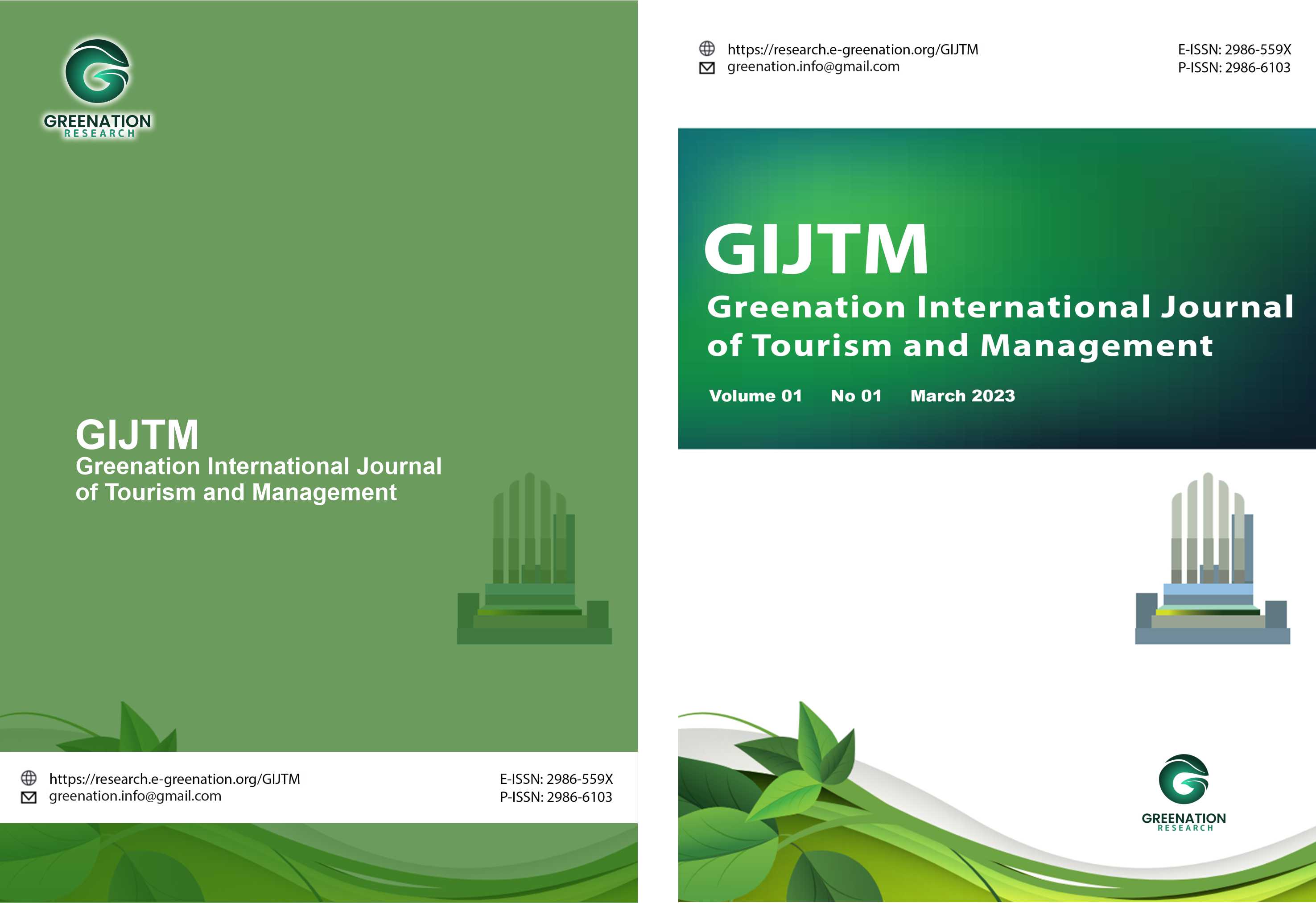Developing a Model Scenario Plan for West Java Champion MSMEs
DOI:
https://doi.org/10.38035/gijtm.v3i3.509Keywords:
Digital Marketing, Customer Relationship Management, Customer Satisfaction, Customer Engagement, Customer Loyalty, MSME Performance, Soft Systems Methodology, Planning ScenariosAbstract
This research aims to design a model to strengthen the competitiveness of Champion MSMEs in West Java through the integration of digital marketing and customer relationship management (CRM) with the Soft Systems Methodology (SSM) approach and planning scenarios. The method used is a mixed method with SEM-PLS analysis, literature studies, interviews, FGDs, and scenario design involving 150 MSME actors in the food and beverage sector. The results of the study show that digital marketing and CRM have a significant effect on customer satisfaction, engagement, and loyalty which has a positive impact on the performance of MSMEs. However, the influence of digital marketing on performance becomes insignificant when mediated by customer engagement and loyalty, while CRM still has an effect both directly and indirectly. Four scenarios for strengthening MSMEs are prepared: (1) Digital – acceleration of digitalization and integrated CRM, (2) Gradual adoption according to readiness, (3) Lagging focusing on literacy and digital infrastructure, and (4) Adaptive and Innovative adaptation strategies to market dynamics. The novelty of this research lies in an integrative and participatory scenario-based development model, with practical guidance that is relevant for MSMEs in West Java.
References
Hair, JR, Black, WC, Babin, BJ, & Anderson, R. (2019). Analisis data multivariat (edisi ke-9). Cengage Learning.
Hamid, A., Alshehhia, A., Abdullah, A., & Mohamed, E. (2022). Faktor-faktor kunci keberhasilan proyek manajemen hubungan pelanggan (CRM) di UKM. Jurnal Bisnis, Ekonomi, & Studi Sosial Emirati, 1 (2), 73–85. https://doi.org/10.54878/xfaz0661
Hananto, A., & Septiani, W. (2020). Pendekatan metodologi soft system untuk merancang model pembelajaran praktik berbasis produksi. Jurnal Teknik Industri, 10 (1), 53–65. https://doi.org/10.25105/jti.v10i1.8389
Hawary, SISA, & Hussien, AJA (2017). Dampak layanan perbankan elektronik terhadap loyalitas nasabah bank umum di Yordania. Jurnal Internasional Riset Akademik dalam Ilmu Akuntansi, Keuangan, dan Manajemen, 7 (1), 50–63. https://doi.org/10.6007/ijarafms/v7-i1/2539
Hernita, H., Surya, B., Perwira, I., Abubakar, H., & Idris, M. (2021). Keberlanjutan bisnis ekonomi dan penguatan kapasitas sumber daya manusia berbasis peningkatan produktivitas usaha kecil dan menengah (UKM) di Kota Makassar, Indonesia. Sustainability (Swiss), 13 (6), 1–37. https://doi.org/10.3390/su13063177
Hollebeek, LD, & Belk, R. (2021). Keterlibatan merek dan kesejahteraan konsumen yang difasilitasi teknologi: Perspektif TAM/PERMA positivis vs. teori budaya konsumen. Jurnal Riset Pemasaran Internasional, 38 (2), 387–401. https://doi.org/10.1016/j.ijresmar.2021.03.001
Hopp, TM (2013). Norma subjektif sebagai pendorong niat mahasiswa komunikasi massa untuk mengadopsi teknologi produksi media baru. Jurnalisme & Pendidik Komunikasi Massa, 68 (4), 348–364. https://doi.org/10.1177/1077695813506993
Ilyas, GB, Amkop, S., Munir, AR, Tamsah, H., & Amkop, S. (2021). Pengaruh pemasaran digital dan nilai yang dirasakan pelanggan melalui kepuasan pelanggan terhadap loyalitas pelanggan. Jurnal Masalah Hukum, Etika, dan Regulasi, 24 , 1–14.
Imasari, K., & Nursalin, K. (2011). Pengaruh Customer Relationship Management terhadap Loyalitas Pelanggan pada PT BCA Tbk. Fokus Ekonomi, 10 (3), 183–192.
Irsyadi, AR (2023). Pengaruh kualitas kehidupan kerja, kepuasan kerja, dan komitmen kerja terhadap kinerja pegawai melalui motivasi kerja pada pegawai BPJS Ketenagakerjaan di wilayah DKI Jakarta tahun 2023. Jurnal Internasional Sains dan Teknologi Maju, 4 (4), 655–664.
Mohammad, J., Tariq, A., Hussain, H., & Ali, R. (2022). Peran mediasi keterlibatan pelanggan dalam hubungan antara pemasaran digital dan kinerja bisnis. Jurnal Perspektif Pemasaran, 6 (1), 22–35.
Dewnarain, S., Ramkissoon, H., & Mavondo, F. (2019). Manajemen hubungan pelanggan sosial: Kerangka kerja konseptual terpadu. Jurnal Pemasaran & Manajemen Perhotelan, 28 (2), 172–188. https://doi.org/10.1080/19368623.2018.1516588
Charoensukmongkol, P., & Sasatanun, P. (2017). Penggunaan media sosial untuk CRM dan kinerja bisnis di negara berkembang: Sebuah studi di Thailand. Jurnal Riset Manajemen Teknologi Tinggi, 28 (1), 1–13. https://doi.org/10.1016/j.hitech.2017.03.003
Tariq, MI, Nawaz, MR, & Javed, S. (2022). Peran CRM, inovasi layanan, dan pengalaman pelanggan dalam mendorong transformasi digital di UKM. Jurnal Ekonomi Usaha Kecil, 58 (2), 275–293.
Kadin. (2024). UMKM sebagai Tulang Punggung Perekonomian Nasional . Kamar Dagang dan Industri Indonesia.
BPS Jawa Barat. (2023). Statistik UMKM Provinsi Jawa Barat 2023 . Badan Pusat Statistik Jawa Barat.
Downloads
Published
How to Cite
Issue
Section
License
Copyright (c) 2025 Rosanna Wulandari, Arissetyanto Nugroho, Derriawan

This work is licensed under a Creative Commons Attribution 4.0 International License.
Copyright :
Authors who publish their manuscripts in this journal agree to the following conditions:
- Copyright in each article belongs to the author.
- The author acknowledges that the Greenation International Journal of Tourism and Management (GIJTM) has the right to be the first to publish under a Creative Commons Attribution 4.0 International license (Attribution 4.0 International CC BY 4.0).
- Authors can submit articles separately, arrange the non-exclusive distribution of manuscripts that have been published in this journal to other versions (for example, sent to the author's institutional repository, publication in a book, etc.), by acknowledging that the manuscript has been published for the first time at GIJTM.

























